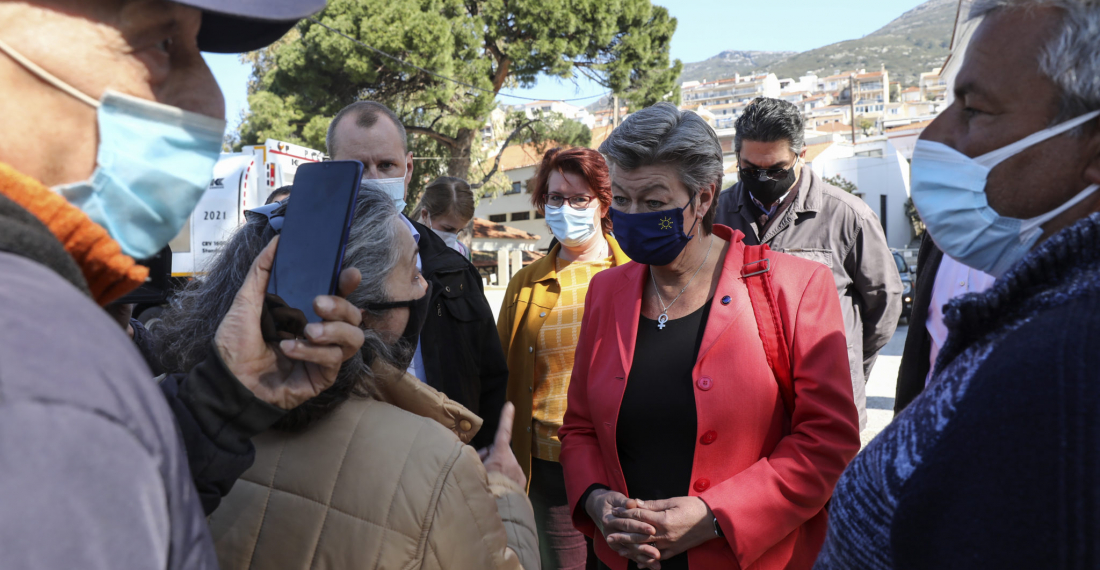European Commissioner Ylva Johansson pledged 276 million euros for the construction and renovation of five refugee camps on the Greek islands. For refugee camps on Lesvos and Chios, the amount is 155 million euros, while 121 million euros will go to smaller refugee camps on Samos, Kos and Leros. The Commissioner was speaking on Monday (29 March) at the start of a two-day visit to Greece.
The EU has called on the Greek government in Athens to complete work on the refugee centres by next winter. Meanwhile, during Johansson's visit, a crowd demonstrated in front of the town hall in Mytilini, the capital of Lesvos, against the EU's migration policy and the migration commissioner's visit.
According to residents and aid organisations, a makeshift refugee camp is currently being set up on Lesvos with worse living conditions than the controversial and overcrowded Moria camp, which burned down in September due to arson. The new centre currently has no electricity and the tents cannot withstand bad weather conditions.







